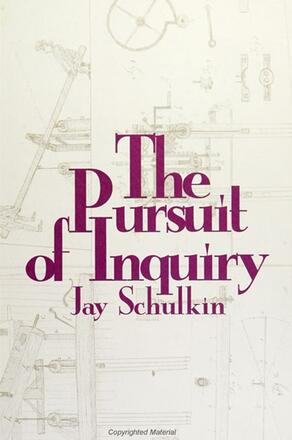
The Pursuit of Inquiry
Alternative formats available from:
Description
In an age of over specialization, The Pursuit of Inquiry is a book that bridges the disciplines of speculative philosophy and ongoing empirical research in psychology, biology, and neuroscience.
Jay Schulkin is on the faculty of the Medical School, and a member of the Institute of Neurological Sciences and Decision Sciences at the University of Pennsylvania. He has been elected to the Society of Philosophers in America.
Reviews
"Jay Schulkin's Pursuit of Inquiry brings a bench scientist's knowledge and experience to the central philosophic problem of reason in contemporary culture. Like his predecessor, Charles Peirce, Schulkin understands reason as inquiry, as the engagement of reality, so as to open up new possibilities for learning. Whether treating the interior depths of selfhood, the role of professionals in public life, or the nature of science, Schulkin makes original, clear, and systematically connected points. This book is a decisive alternative to the deconstructionists' treatment of reason as conversation. "— Robert Cummings Neville, Boston University
"This is a philosophic work written by a practicing scientist. As such it provides a discussion of 'inquiry' rooted in concrete practice. The episodical character of the discussion may be disconcerting to some systematic philosophers, but such an approach to inquiry is valuable precisely because it calls attention to the actual character of the concrete modes of scientific practice. The book is written from an avowedly pragmatic perspective which can be brought into creative tension with the new pragmatism of Richard Rorty. " — David L. Hall, The University of Texas at El Paso